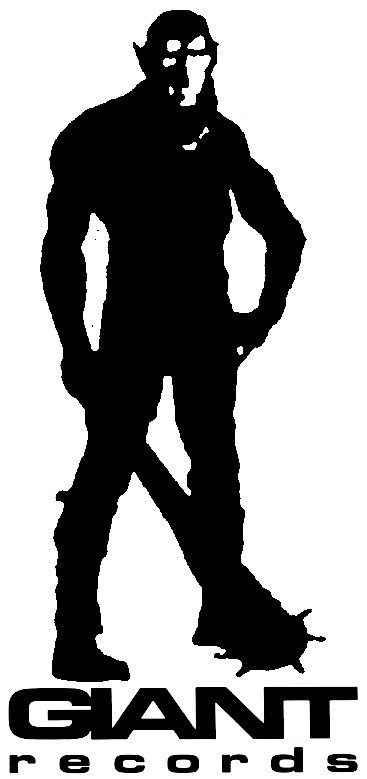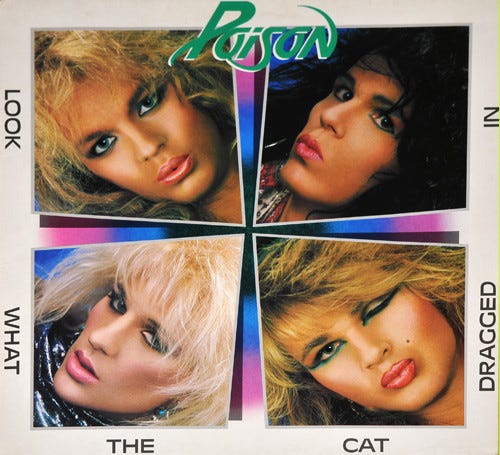INTERVIEW: STEEV RICCARDO PT I
During the midpoint of the 1980s, independent record labels and distributors were forming subsidary labels catering to the rapidly growing audience for Hardcore Punk. Due to these labels normally being extensions of Heavy Metal imprints such as Combat and Metal Blade, their stable of bands included Corrosion of Conformity, Crumbsuckers, Cryptic Slaughter, Broken Bones and others which merged Hardcore with Metal.
Around this time, Steev Riccardo was approached to head up Giant Records, a Hardcore oriented label that would extend from a Long Island based record distrubtor, Dutch East India Trading. Unlike the above-mentioned imprints, Giant did not cater to strictly headbanging heshers with a roster that included bands as diverse as Government Issue, Dag Nasty, Verbal Assault, 76% Uncertain, Indestructable Noise Command, Insted, Big Wheel and Uniform Choice.
Although the label was short-lived, their amount of releases were signifigant and included classics like Verbal Assault’s Trial, the debut album from Shades Apart and Insted’s Bonds of Friendship. They were also responsible for the then frowned upon depature records of Dag Nasty and Uniform Choice as well as irrelevant Hardcore parody band, Anarchy 6.
Recently, I had an extended conversation with Steev Riccardo covering the entire history of Giant. In this first installment, we talk about his first job with Enigma Records, how he landed the job at Dutch East India and assembloing the labels’ stable of bands.
No Idols: What was your entry into the music business?
Steev Riccardo: I started working for Enigma Records in 1984. I was the music director of my college radio station WDJM at Framingham State University and my goal was to get a job in the music industry. I grew up right here outside of Boston and bought a one-way ticket to California right after I graduated college. I decided SST and Enigma were the labels I was interested in working at and I had a couch to stay on in Hermosa Beach, which is right around where Enigma and SST were located. I went down to Enigma to meet with Kim Jones, who was their radio person at the time. She told me they didn’t have any jobs and I should go and try to get a job in the mailroom at a major label. So I left dejected and took three buses to get back to where I was staying and called the next number on my list which was Greenworld Distribution. I had no idea Greenworld was owned by Enigma! The guy who ran it was Paul Marotta, a Cleveland legend who played with the Styrenes and Electric Eels. He gave me the address of their office and I was like, “I was just at that address!” and then he told me they were in the next office over. So I went back down there, talked to Paul and then a few days later he called back and hired me.
I started by selling records over the phone and next thing you know, I was moved over to the label and that’s when I signed a bunch of bands. I was one of the first eight people who worked there. What we accomplished was great and set the tone for my whole music career.
Who did you sign to Enigma?
It’s a really diverse group of bands! The most famous is Poison, but I’m just as proud as others I signed like the Neighborhoods, the Outlets, Personal Effects from Rochester and the Straw Dogs. That was just when they were changing over to The F.U.s’. They had an association with Enigma through being on the subsidiary label Gasatanka but they weren't officially signed to the label until I signed them. I signed Ronnie Montorse to a solo deal.
Nice! So how did you shift into working for Dutch East India Trading on the east coast?
I left Enigma after working there for over three years to go to a job at Roadrunner in New York. I wasn’t sure if I wanted to do it, but my friends talked me into it. So, I moved to New York to work for Roadrunner and it was a disaster. I only lasted with them for a year before getting fired. It was the only job I ever got fired from. I was trying to decide between working at Important or Dutch East and Barry Tenenbaum at Dutch East said, “If you come here, you can start your own label”. So I made the decision to go with Dutch East. Barry told me the name and idea for the label. He asked, “What do you think of Giant Records?” It sounded great to me, man! Then he asked me what I thought of Government Issue. I told him I love GI. Then he asked, “What do you think about them being your first signing?” I thought it was kind of strange he'd tell me who my first signing would be, but I really did love GI. I started talking on the phone with Tom Lyle and we developed a fantastic relationship. Having GI on the label gave us instant credibility. Government Issue You was the first record we put out.
Did Barry pitch the label to you as being solely punk or metal stuff?
He had Homestead Records with Gerard Cosloy and that was noisy, indie rock, so I tried to make Giant a little different. Dutch East had a deal with this label from overseas, Les Disques Du Crepuscule. They released Cabaret Voltaire, The Hood, Annie Domino and the soundtrack to a movie called Salvation. The other deal was Barry wanted those to be released domestically through the Giant imprint. I didn’t have a problem with that and we ended up doing really well with those records. Besides that, I could do whatever I wanted. I signed all the bands myself. No one told me who to sign. I picked bands that I liked and I wanted Giant to be mostly a punk label.
Who were the first bands you wanted to sign to Giant?
Mike Gitter helped me out a lot in the beginning of the label. Him and Al Quint started communicating with me right away. Mike would call me and throw an idea at me and say, “If you like the idea, let me know”. Mike did that with Verbal Assault. He connected me with Pete Chramiec and got on marvelously. I had no problem signing them to the label. Once they heard we had GI, they were open to it. They were the first band I signed. I.N.C was a thrash band I wanted to sign to Roadrunner but didn’t get to. So, when the opportunity came up, I signed them right away. Gitter introduced me to Doug Carrion who I knew through the Descendents. When I worked at Restless, we helped release the Enjoy! Album. I started talking to Doug on the phone about Dag Nasty. I went out to California to meet him and Brian and they agreed to the deal I presented to them. It’s the same story for Uniform Choice. Pat Dubar called Gitter and asked for my phone number. Dubar and I connected and we made a deal. All the deals were for three records with a seven-inch first. Most of them never ended up making it to the third record! Marginal Man was breaking up and they had one album finished, so they called and asked if I would be interested in releasing it. I said yes. That was a one-off deal. So was the 7 Seconds live album Live Plus One. I met with Kevin down at a CBGB Hardcore Matinee and we agreed to something and it came out really well. All the Wishingwell stuff came through Dubar and that worked out really well, too. The only other band was Steel Vengeance. They were a straightforward metal band that I liked. I think they were from Michigan. Nothing really happened with them, unfortunately.




